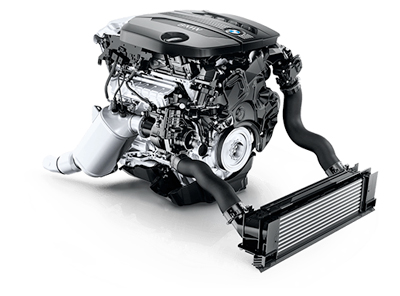Introducing the Intricacies of Next-Generation Power Units: a Deep Dive Into Advanced Engine Technologies and layouts
As we stand on the precipice of a new period in transport, the details of next-generation engine layouts bid us to check out the sophisticated technologies and advancements that assure to redefine the driving experience. Digging deeper right into the worlds of emission control, smart engine monitoring systems, and the perspective of power device growth, we locate ourselves on the cusp of a change that promises to improve the landscape of flexibility as we understand it.
Evolution of Engine Materials

The change towards advanced engine materials has additionally enabled engineers to develop engines with higher power outputs while maintaining fuel effectiveness requirements. For instance, using light-weight materials reduces the general weight of the engine, causing enhanced fuel economic climate and reduced emissions. In addition, developments in materials innovation have permitted far better thermal administration within engines, causing boosted integrity and durability.
Turbocharging and Supercharging Technologies
Exactly How do Turbocharging and Supercharging Technologies transform engine efficiency and effectiveness in contemporary lorries? Turbocharging and turbo charging are innovations that substantially improve engine efficiency by boosting the quantity of air intake into the combustion chamber. Turbocharging achieves this by utilizing a turbine driven by exhaust gases to pressurize the intake air, while supercharging utilizes a belt- or chain-driven compressor to achieve the very same result.
These modern technologies make it possible for smaller, extra fuel-efficient engines to create power equal to bigger ones, referred to as downsizing. Forcibly more air into the cyndrical tubes, turbo charging and turbocharging boost burning efficiency, causing raised horse power and torque output without a substantial increase in engine dimension. This brings about better acceleration, hauling ability, and overall driving efficiency.
Moreover, turbo charging and turbocharging add to boosted gas effectiveness by permitting the use of smaller engines that take in less gas under regular driving problems - bmw engine. This combination of boosted efficiency and performance has made turbocharging and turbo charging integral elements of lots of modern engine designs
Emission Control and Environmental Effect
With increasing international problems relating to air quality and ecological sustainability, the application of discharge control modern technologies in vehicles plays an essential duty in decreasing harmful contaminants released into the ambience. Modern vehicles are geared up with advanced discharge control systems that aid lessen the environmental impact of automotive procedures. Catalytic converters, as an example, are created to transform toxic gases such as carbon monoxide, nitrogen oxides, and hydrocarbons into less harmful compounds like carbon dioxide and water vapor.
Moreover, advancements in engine technology, such as the assimilation of exhaust gas recirculation systems and careful catalytic reduction, have significantly added to decreasing exhausts. These modern technologies operate in tandem to maximize combustion efficiency and lessen the release of dangerous pollutants into the air. Furthermore, the advancement of crossbreed and electric lorries stands for a crucial action in the direction of decreasing the general environmental impact of the transport market.
Intelligent Engine Monitoring Systems

Additionally, these systems make it possible why not try this out for automobiles to meet rigid emissions requirements without jeopardizing efficiency, offering an extra ecologically pleasant driving experience. The integration of expert system and artificial intelligence abilities in engine monitoring systems remains to press the limits of what is possible, resulting in more enhancements in performance, reliability, and overall car efficiency. bmw engine. As automotive innovation breakthroughs, intelligent engine administration systems will certainly play an essential duty in shaping the future of transportation towards an extra lasting and efficient direction
Future Trends in Power Device Development
As smart engine administration systems pave the method for enhanced control and optimization in modern vehicles, future trends in power unit development are positioned to redefine the landscape of auto propulsion modern technologies. These different power sources use enhanced efficiency and efficiency while straightening with rigid environmental policies.
An additional considerable trend is the integration of innovative products and manufacturing techniques. Lightweight products such as carbon fiber and aluminum are being used to decrease overall lorry weight, enhancing fuel efficiency and efficiency. Additionally, developments in 3D printing and additive manufacturing are allowing the production of complex engine parts with higher accuracy and longevity.
Moreover, expert system and artificial intelligence are playing an essential function in optimizing power unit performance. These modern technologies enable real-time surveillance and adaptive control, bring about much more efficient and reputable power distribution. On the whole, future patterns in power unit growth are tailored towards sustainability, performance, and performance, driving the automotive industry in the direction of a brand-new age of propulsion innovations.

Verdict
In verdict, the advancements in engine materials, turbocharging, discharge control, and intelligent administration systems have actually led the means for next-generation power units. The elaborate styles and technologies in modern-day engines display the ongoing evolution of automobile innovation.
Discovering the dynamic innovations in engine products has actually been crucial in boosting the efficiency and performance of modern engines. Over the years, the evolution of engine materials has actually played an essential role in pushing the boundaries of what recommended you read engines can achieve.The shift towards progressed engine products has actually likewise allowed engineers to develop engines with higher power outputs while maintaining fuel efficiency criteria.The implementation of intelligent engine management systems in modern lorries has actually changed the means engines are regulated and enhanced for performance and effectiveness. By gathering data in real-time and evaluating it with sophisticated formulas, intelligent engine management systems can adjust to driving designs, environmental elements, and engine health to take full advantage of power outcome while minimizing fuel intake and exhausts.
Comments on “The Evolution of the BMW Engine: A Look Back at Iconic Models”